Meeting of the International Cooperation Standing Committee for the First Quarter of 2025
- Consultation & Advice Division
- 02-20-2025
International Cooperation Standing Committee discusses
‘measures for cooperation in unification policy in the Trump Era’
The PUAC International Cooperation Standing Committee (Chairman Cho Yoon-young) held a meeting for policy recommendations for the first quarter on February 20, with 50 committee members, including 24 overseas members, attending.
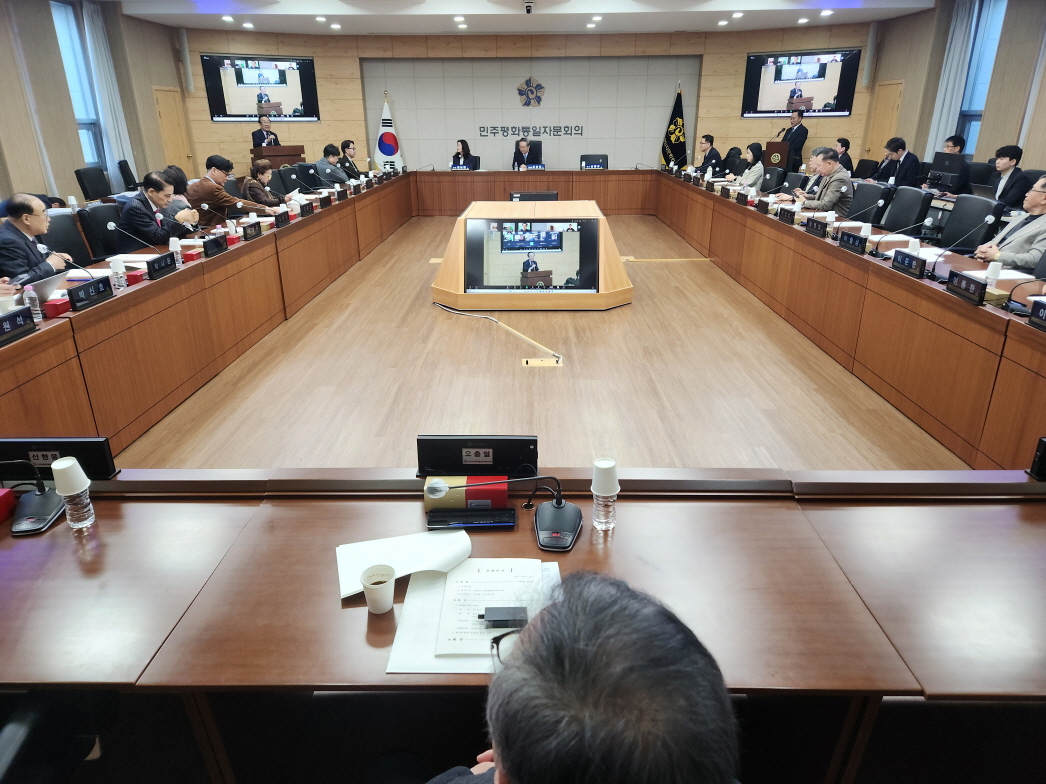
<Overview of the meeting>
The meeting, which was held under the theme of "Unification Policy Cooperation Measures in the Trump Era," proceeded in the order of keynote presentations by Kwon Bo-ram, a researcher at the Korea Institute for Defense Analyses, and Park Won-gon, a North Korean studies professor at Ewha Womans University, a panel discussion of Lee Ki-wan, a professor of international relations at Changwon University, and Kim Sung-soo, a professor of politics and diplomacy at Hanyang University, and a comprehensive discussion involving all committee members.
In his opening remarks, Chairman Cho Yoon-young said, "It is regrettable that discussions on unification are ignored by both conservative and progressive blocks amid a difficult situation at home and abroad." Cho emphasized that unification discussions should continue under any circumstances.
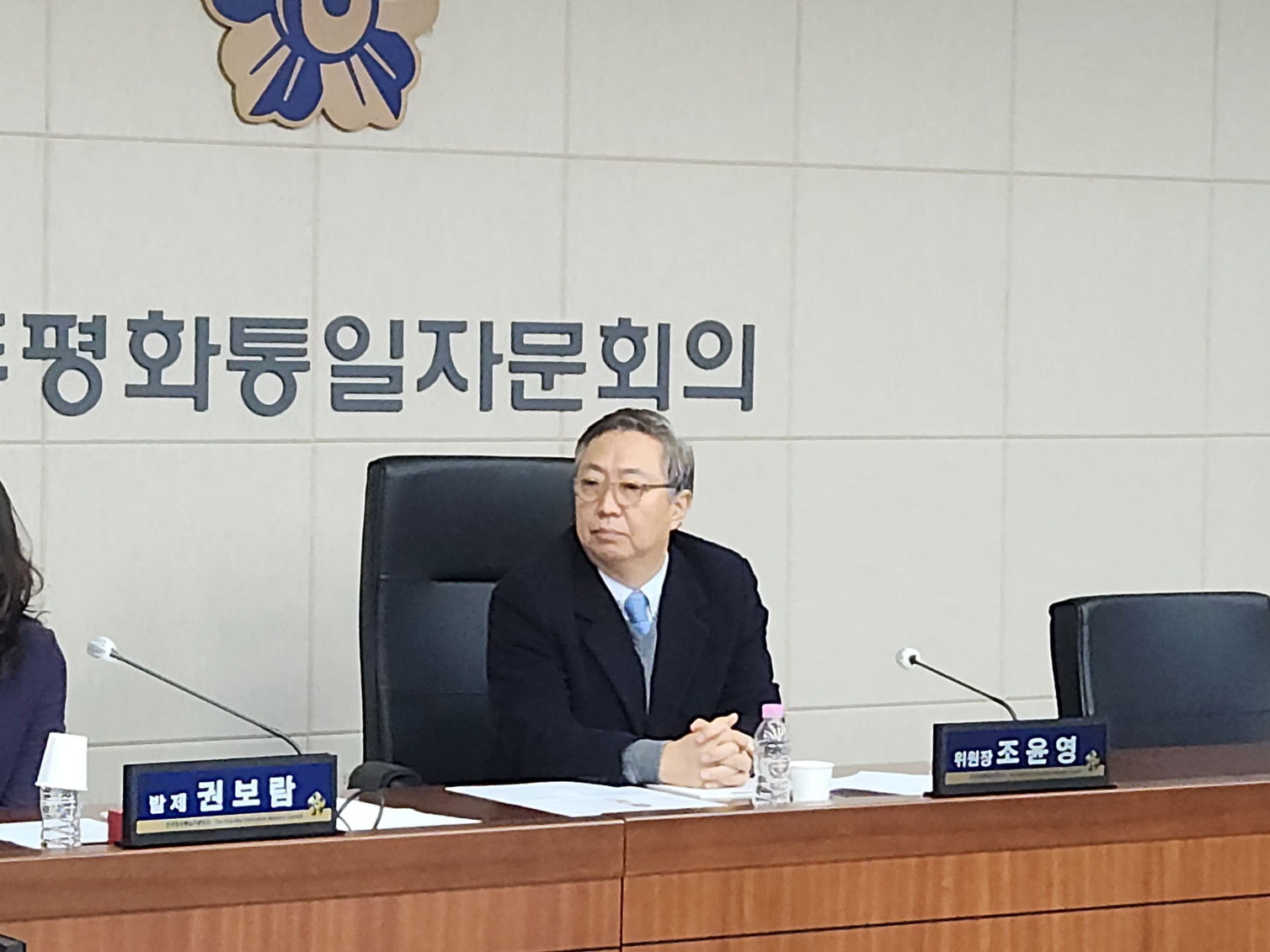
<Cho Yoon-young, Chairman of the International Cooperation Standing Committee>
Executive Vice- chairperson Kim Kwan-yong said, "We are facing a difficult situation at home and abroad due to the inauguration of the Trump administration, which puts priority to deals than alliances." "It is time to seriously look for the direction of our response when the U.S.-North Korea dialogue takes place at a time when North Korea demands that it be recognized as a nuclear power."
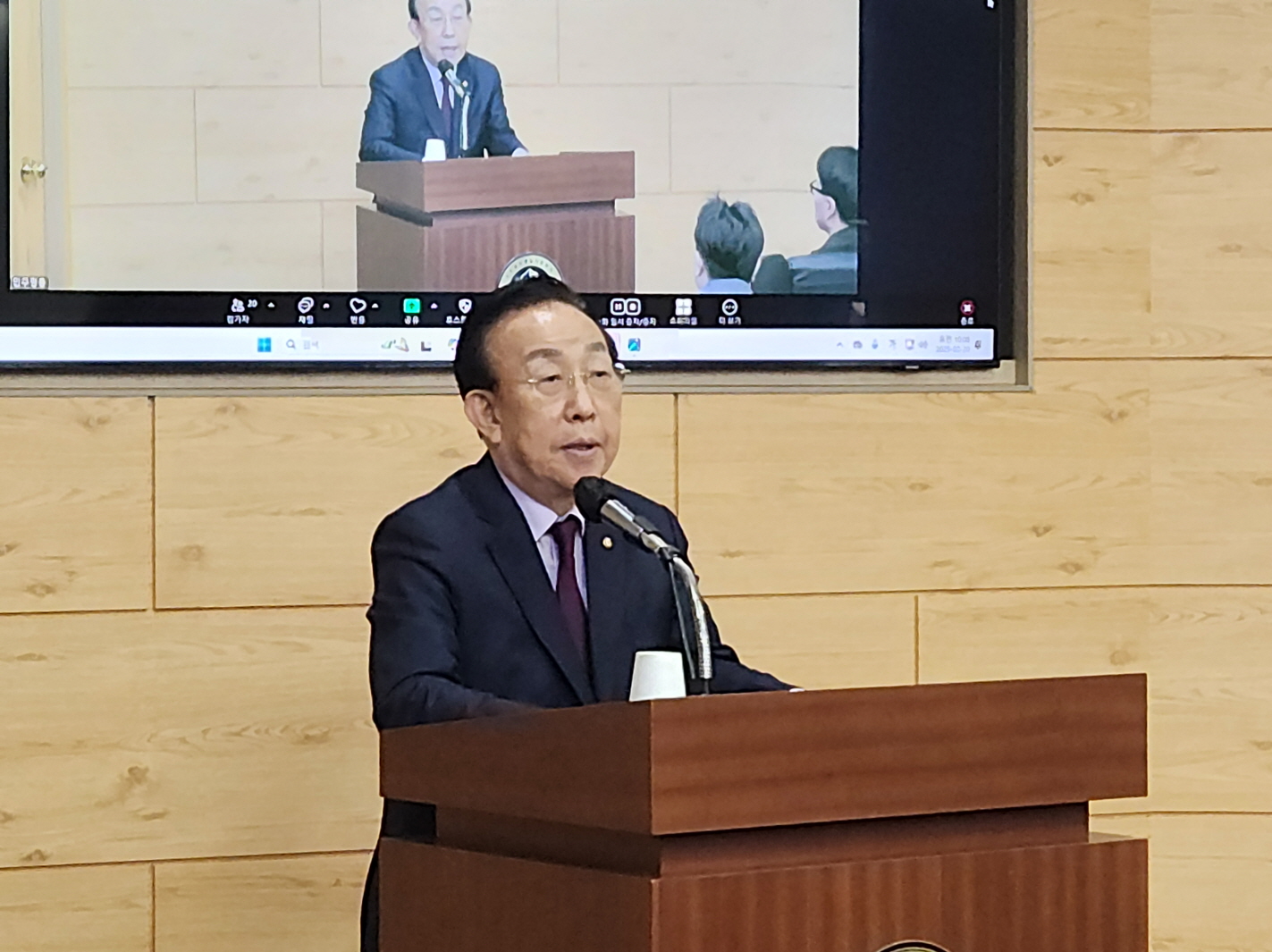
<Remarks by Executive Vice Chairman Kim Kwan-yong>
Full-fledged presentations and discussions proceeded. The first keynote presenter, researcher Kwon Bo-ram, expressed concern about the Trump administration's policy on the Korean Peninsula, saying, "The U.S. has made clear about its goal of rejecting and culling China's all-out challenges. At the same time, the U.S. is moving to realign alliances amid restructuring of external relations. It is urgent to come up with countermeasures." Regarding the America First policy, Kwon called for "a 'customized' diplomacy toward the U.S. and a steady preparation for the possibility of dialogue between the U.S. and North Korea."
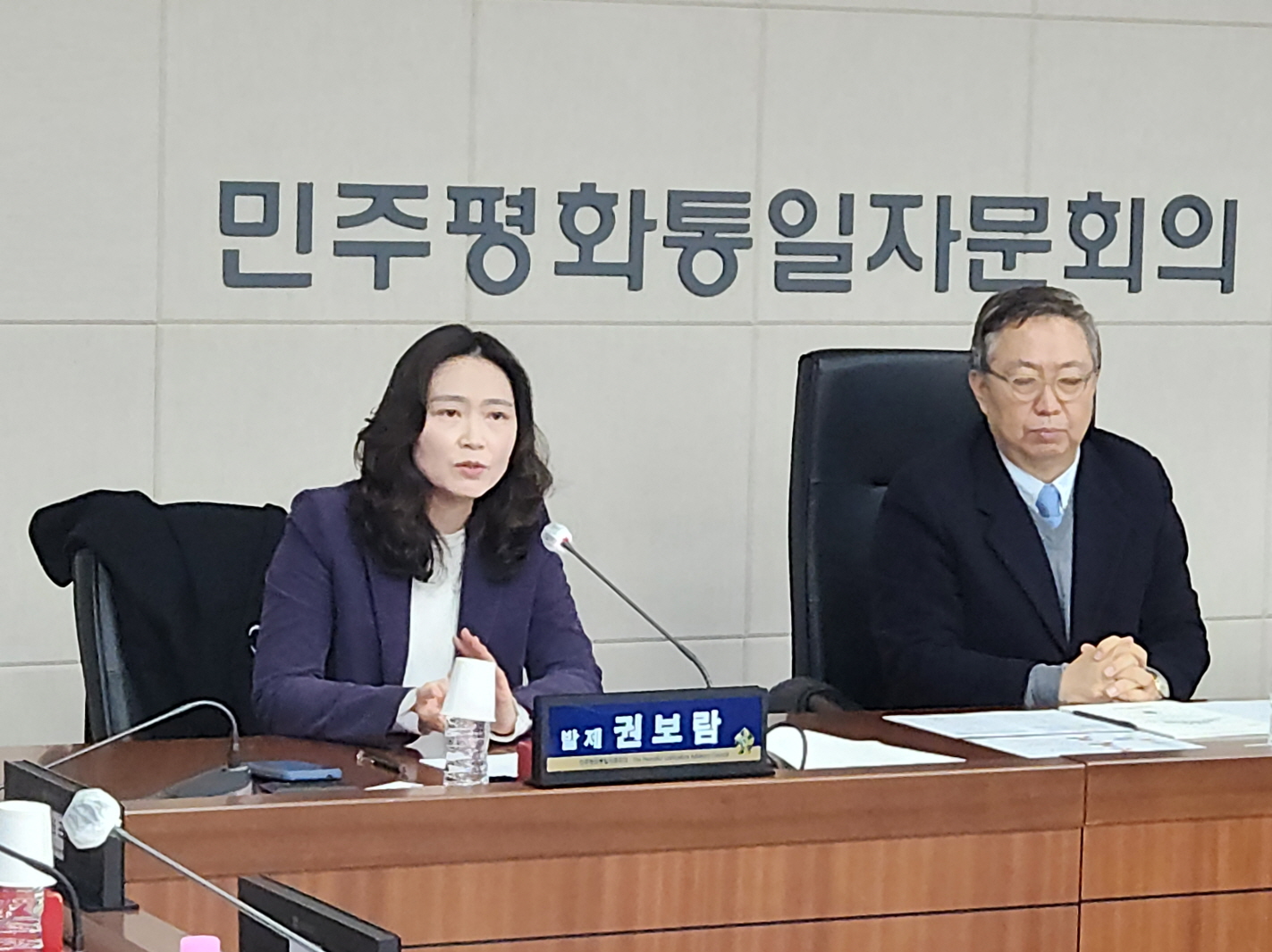
<Presentation by Kwon Bo-ram, a researcher at the Korea Institute for Defense Analyses>
Park Won-gon, a professor of North Korean studies at Ewha Womans University said in his keynote presentation on North Korea's foreign relations, "North Korea would prefer an agreement to manage the crisis or prevent escalation while maintaining the structure of hostilities rather than seek to improve fundamental relations with the U.S.." Park added, "After the Trump administration's review of North Korea policy, South Korea and the U.S. should maximize bilateral cooperation and include North Korea's denuclearization as a key goal of North Korea policy." "In consideration of Trump’s emphasis on deals in dealing with alliances, we should continue to cooperate with the U.S. to ensure that the customized extended deterrence measures that South Korea and the U.S. have developed are implemented," he said.
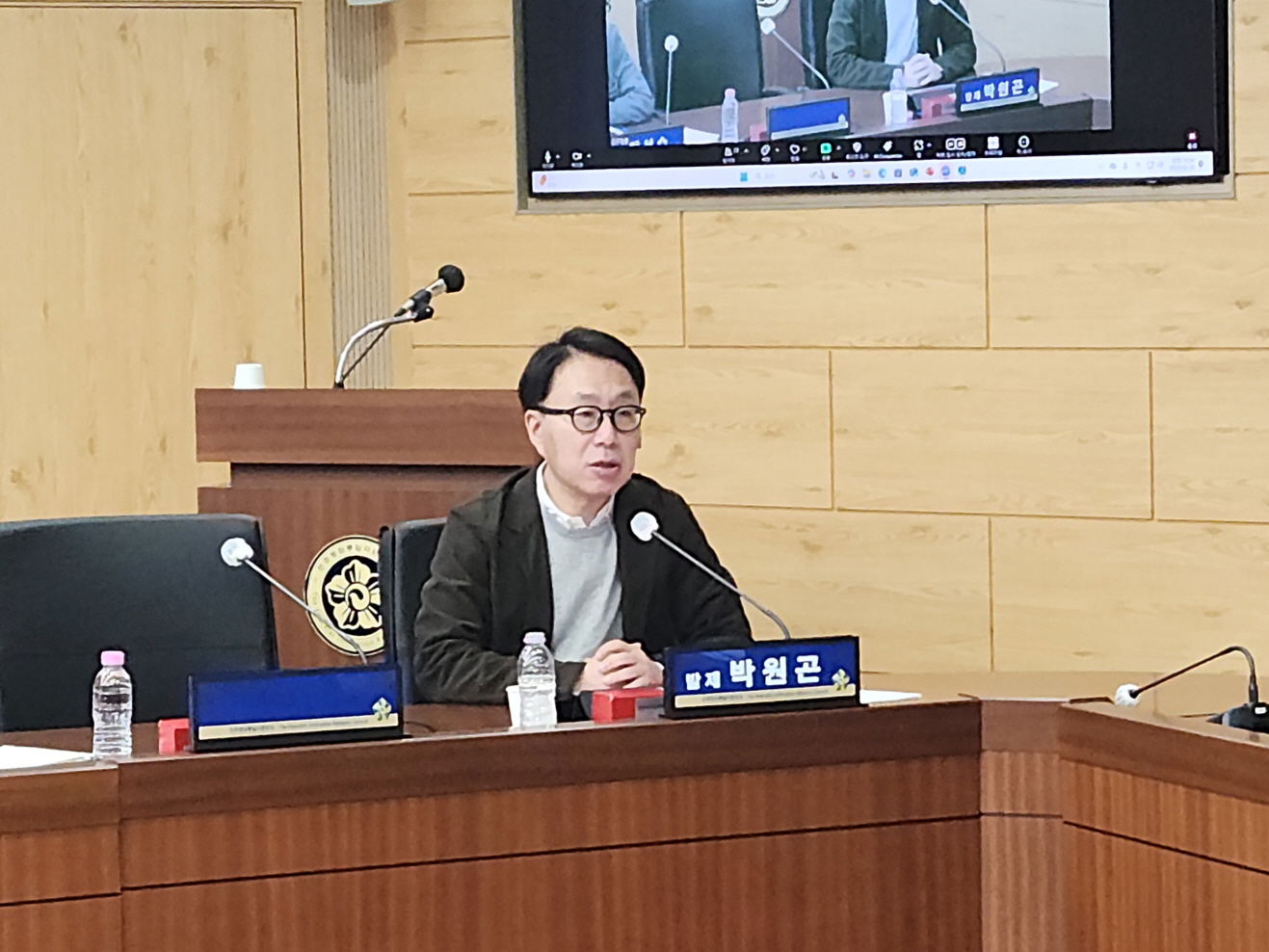
<Park Won-gon, professor of North Korean studies at Ewha Womans University, making a keynote presentation>
Regarding researcher Kwon’s keynote presentation, Lee Ki-wan, a professor of international relations at Changwon University who participated as a panelist, said, "It is necessary to consider the possibility of the Trump administration changing its relations with North Korea and prepare specific countermeasures against the indication that the U.S. may withdraw its policy on North Korea’s nuclear program.
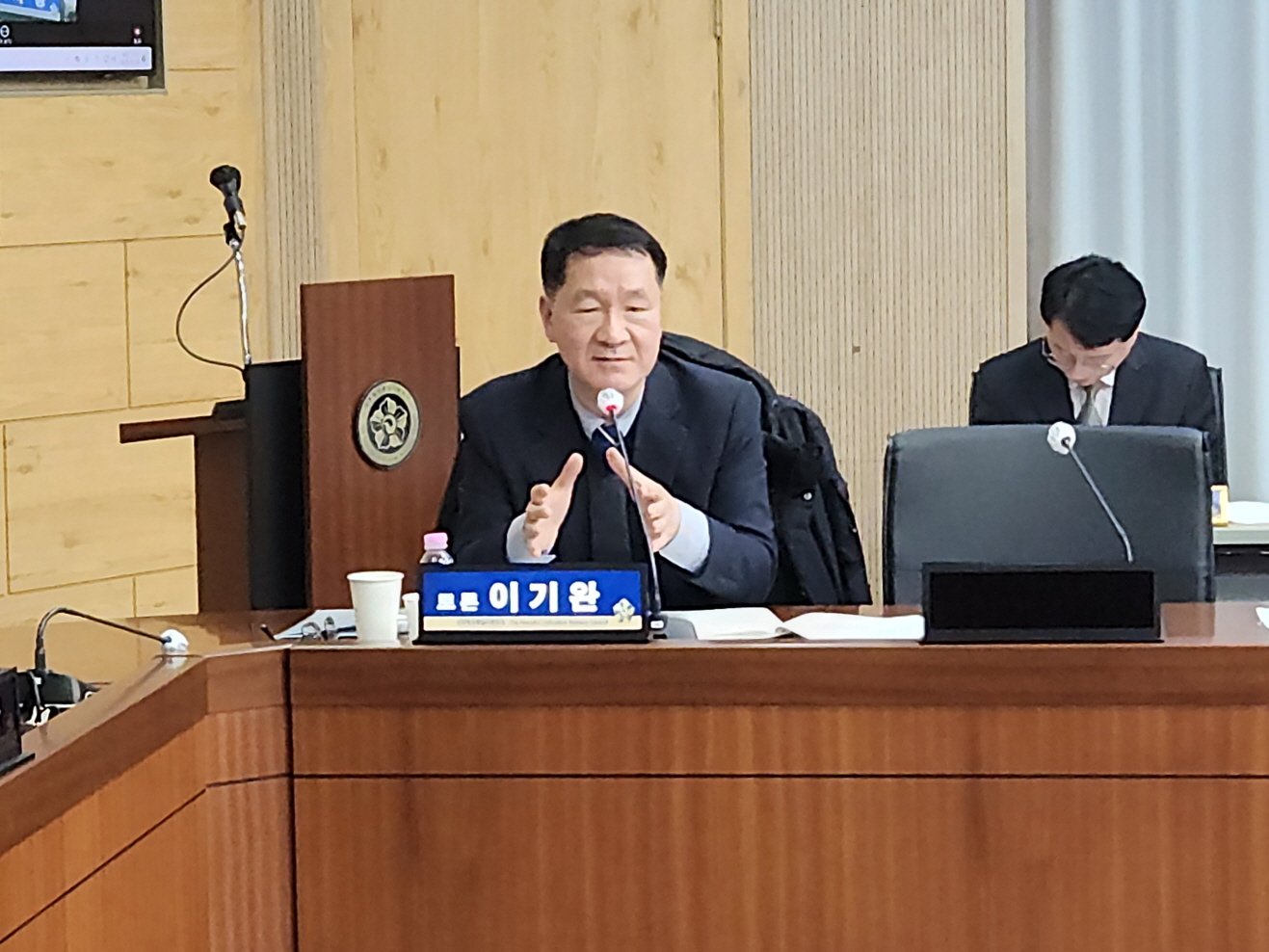
<Lee Ki-wan, professor of international relations at Changwon University, participating as a panelist>
Regarding Professor Park Won-gon's presentation, the next panelist Kim Sung-soo, a political and diplomatic professor at Hanyang University, proposed "looking for indirect cooperation measures between the two Koreas centered on the Global South region." Kim called for "establishing a cooperative system between the Global South and minilateralism to form international public opinion on peace on the Korean Peninsula."
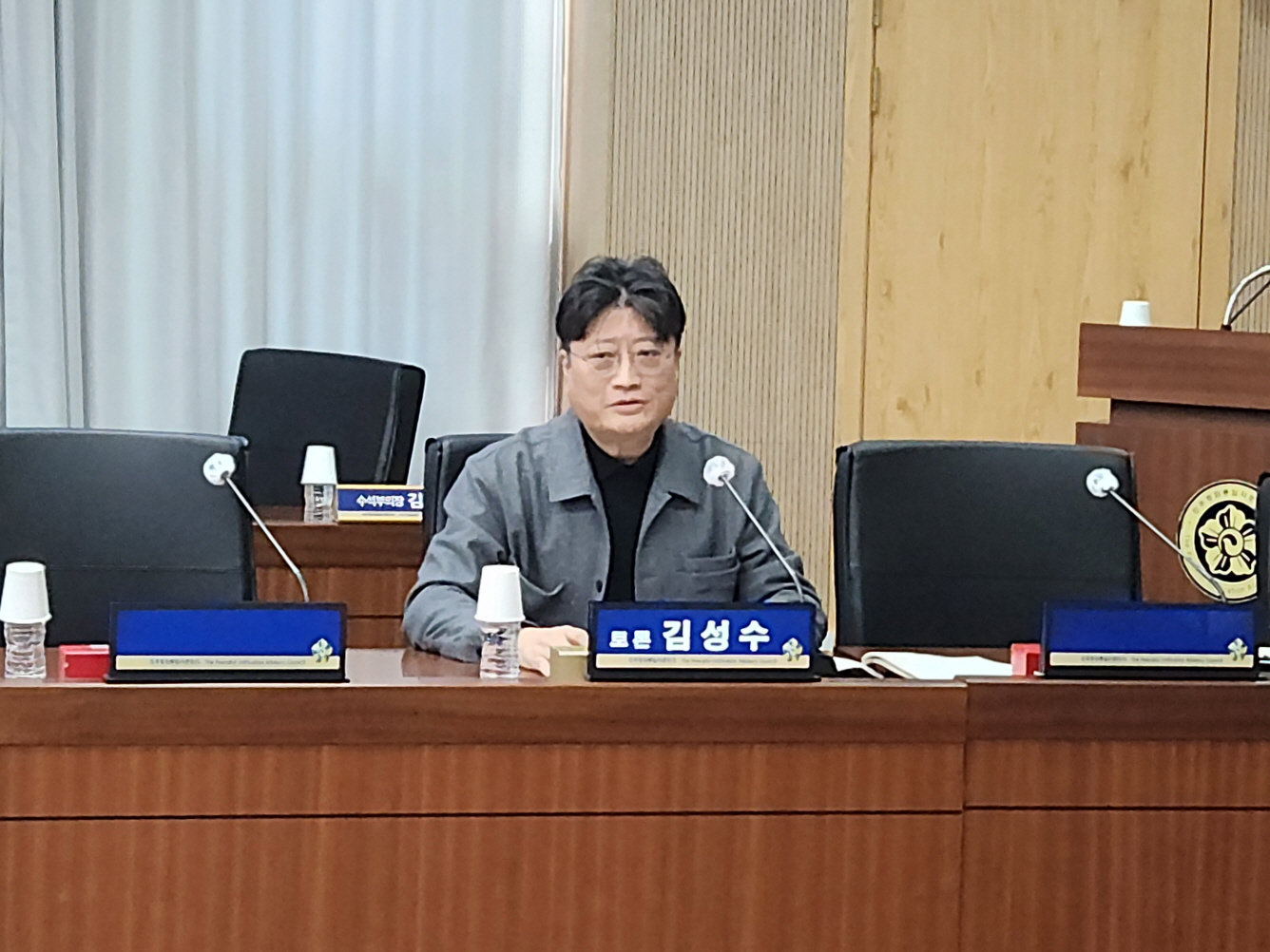
<Kim Sung-soo, professor of political and diplomatic studies at Hanyang University, participating as a panelist>
In the final session of comprehensive discussion, participants talked about △ strengthening domestic unification capabilities for denuclearizing North Korea, △ operating unification education programs tailored to changes in the environment, △ actively utilizing Global South countries to check North Korea, and △ establishing a trusted relationship with the Trump administration to resolve the North Korean human rights issue.
-
How satisfied are you with the information you have reviewed?







